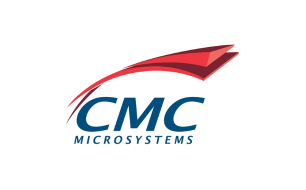Latest News and Updates
Stay informed with the latest news, developments, and insights from Canada's Semiconductor Council and the semiconductor industry.










Chip firms push for 'buy Canadian' approach to $2B AI compute plan
The Logic, Oct. 2024
Firms making chips and other computing hardware in Canada are urging the federal government to include them in its $2-billion plan to build ou the country's artificial intelligence infrastructure, instead of splurging on U.S. tech giants.
Canada Steps Up Semiconductor Investment
EE Times, Jul. 2024
The Canadian federal government recently stepped up its support of the country’s semiconductor industry directly and indirectly with recent funding announcements, but there is more work to be done if Canada’s chip sector is to scale up and not repeat past mistakes. In early April, Prime Minister Justin Trudeau announced $2.4 billion CAD (about $1.75 billion) for AI-related investments, with most of it—$2 billion CAD (about $1.5 billion)—directed at a new AI Compute Access Fund aimed at providing access to computing capabilities and technical infrastructure.
Canada Invests Millions to Build Chip Network as US Races Ahead
Bloomberg, Jul. 2024
Canada will invest C$130 million ($88.2 million) over five years to build a national chip network, as calls intensify for the government to do more to bolster its lagging semiconductor sector. Industry Minister Francois-Philippe Champagne announced the outlay from the federal Strategic Innovation Fund on Thursday. The investment supports a C$220 million project led by the nonprofit research accelerator CMC Microsystems to help Canadian startups...
Government of Canada Releases Updated Critical Minerals List
Natural Resources Canada, Jun. 2024
Today, the Honourable Jonathan Wilkinson, Minister of Energy and Natural Resources, announced that the Critical Minerals List has been reviewed and updated following substantial consultations to focus our efforts in developing robust critical minerals value chains. To determine which minerals are considered critical, Canada released its first Critical Minerals List in March 2021 with a commitment to review the minerals identified as critical every three years. The list guides federal policy and programs and signals government areas of priority to stakeholders.
Investing in semiconductors to create jobs, economic growth, and new opportunities
Prime Minister of Canada, Apr. 2024
Semiconductors power the world. From computers to medical equipment, to electric vehicles, semiconductors – or microchips – produce so much of what we depend on. They are also critical in the global race to scale up and adopt artificial intelligence, quantum computing, and other emerging technologies that have the potential to transform our economies. As global supply chains adapt to meet increasing demand, we can leverage Canada’s innovation and talent to grow our microchip industry....
Canada puts $59.9M into IBM’s $1B Quebec semiconductor packaging expansion
The Logic, Apr. 2024
The federal government is providing $59.9 million in financing for a $226.5-million expansion of IBM’s semiconductor packaging plant in Bromont, Que., and for the tech giant to develop quantum technologies with a local R&D lab, The Logic has learned. IBM is planning to spend more than $1 billion over five years on the plant, a key asset in Canada’s plans to create continental chip supply chains.
Intel wins $19.5 billion in CHIPS Act funding as 'historic' semiconductor spending spree heats up
Msn.com, Mar. 2024
The Commerce Department is taking its biggest step yet toward onshoring semiconductor manufacturing with a historic $19.5 billion funding deal with Intel, which the Santa Clara, Calif.-based semiconductor giant plans to use for four new production facilities across the country. President Biden signed the $53 billion CHIPS and Science Act into law in August 2022, committing to ensure that the U.S. could design and manufacture the advanced computer chips that power everything from lawnmowers to supercomputers on its own soil...
SPARK and the Canadian Semiconductor Opportunity: A Global Endeavor with Local Roots
SPARK Microsystems, Mar. 2024
SPARK Microsystems is proudly headquartered in Montreal, and we celebrate our roots here! More importantly, we take care to help cultivate these roots. Today, our local technology ecosystem is blossoming. The semiconductor business opportunity in Canada continues to flourish, thanks in large part to our talented and enthusiastic peers and partners in the Canadian tech, academic and investor communities. We share great aspirations to make Canada’s tech sector among the world’s great technology hubs.
Canada's Inaugural Semiconductor Summit: A Call to Action for Growth and Collaboration
BNN Breaking, Feb. 2024
On a brisk day in Ottawa, the wheels of progress turned within the walls of a summit that could very well dictate the future trajectory of Canada’s role in the global semiconductor landscape. February 6, 2024, marked a significant milestone as the Canadian Semiconductor Council hosted its inaugural Semiconductor Summit, drawing together a diverse collective of 150 participants across government, academia, and businesses.
Now is the time to embrace Canada for an integrated North American semiconductor supply chain
DIGITIMES Asia, Feb. 2024
The aftermath of the COVID-19 pandemic has sparked many economies to address the disruptions caused throughout the global semiconductor supply chain. Whether the result of so-called "security nationalism," unsettled competitive trading regimes, or warfare destabilization, we are experiencing a new competitive era in semiconductor manufacturing. Canada has become a major participant in those ongoing reshoring recalibrations...
How Canada's Chip Sector Could Get Its Groove Back
EE Times, Jan. 2024
The chip business in Canada is poised for a renaissance—one that may well depend on alliances in the United States, experts told EE Times. The country north of the 49th parallel has had a semiconductor industry for decades, but there’s been a gap in its growth: Due, in part, to the failure of a stalwart telecom giant, globalization and outsourcing to other parts of the world, its expansion hit a bump at the start of the millennium.
Canada Must Double Down on Chip Industry Talent
EE Times, Jan. 2024
The brain drain to the U.S. has always been a challenge for the Canadian tech sector at large: Both homegrown and international chip companies looking to scale up in Canada are likely to face some headwinds as they try to hire the needed talent. Experts told EE Times that Canada is making many of the right moves with a steady pipeline of talent coming out of its universities who can staff the sector, which is heavily focused on R&D and design, driven in part by the AI boom.
